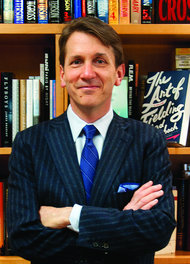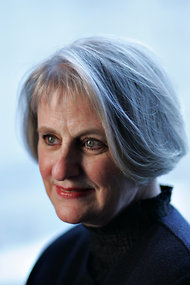Bookish, the Web site built by top publishers to provide information on their books and authors in a literary magazine-like format, opened for business Monday night.
Although the site received financing from just three houses – Simon Schuster, Penguin Group USA and Hachette Book Group – it will include books by 16 other publishers including Random House and Scholastic.
Meant primarily as a destination for readers, visitors can also purchase books on the site directly from the publishers through bookish.com or other retailers if they’d like.
The initial line-up of features includes a diverse range of articles, including a review of the bestselling erotic novel “Fifty Shades of Grey” by the editors of the satirical magazine The Onion, and an essay by Elizabeth Gilbert, of “Eat, Pray, Love” fame, responding to Philip Roth’s criticism of writing as profession.
The site is expecting a lot of contributions by prominent authors who promised their support. Among the current offerings is an interview with Michael Connelly about a book he stopped writing after100 pages, and why.
The site was originally scheduled to go live in the summer of 2011, but there have been many changes along the way. One of the biggest adjustments to the original plan has been the evolution of the site’s book recommendation engine, which its creators argue will be the most sophisticated available.
Instead of relying essentially on the taste of other customers with similar preferences, as most recommendation engines do, Bookish’s tool takes into account critical reviews and awards. Eventually it will even reflect the insights derived from a reader’s own nuanced description of books — for example, that the reader found a book to be exciting but unsatisfying.
Ardy Khazaei, Bookish’s chief executive, said this will be a better way for people to discover new books, because recommendations from friends are not necessarily the best way to find a match for a reader’s tastes. He added that friends and relatives “won’t be able to know about as many relevant books as our tool can.”
Article source: http://mediadecoder.blogs.nytimes.com/2013/02/04/bookish-new-web-site-provides-information-on-books-and-authors/?partner=rss&emc=rss

